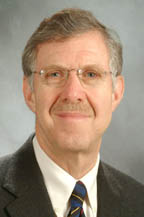Alvin I. Mushlin, M.D., Sc.M.

Alvin I. Mushlin, M.D., Sc.M.

For relevant information regarding accepted insurances, please contact this provider directly.
About Alvin I. Mushlin, M.D., Sc.M.
Alvin Mushlin, M.D., Sc.M., is the Nanette Laitman Distinguished Professor of Public Health in the Department of Population Health Sciences and a Professor of Medicine at ČÕąūavÉŦĮéÆŽ Medical College. From 1999 to 2013, he served as Chair of the medical college’s Department of Public Health (now Population Health Sciences), and Public Health Physician-in-Chief at NewYork-Presbyterian Hospital/ČÕąūavÉŦĮéÆŽ Medical Center. Earlier, he had been Professor of Community Medicine and Medicine at the University of Rochester since 1976, where he was active in research and teaching programs, as well as in clinical practice as a primary care internist.
Dr. Mushlin's research focuses on the application of decision and cost-effectiveness analysis to the evaluation of clinical policies and medical technologies, with the aim of making medical care and public health more evidence-based and priority setting more rational. Specifically, he conducts studies to quantify the value and accuracy of diagnostic tests and procedures, understand the efficacy and cost-effectiveness of interventions for common clinical problems, and measure the quality of medical care. He is the author of over 100 publications in the fields of primary care, clinical epidemiology and medical technology assessment. He has been a consultant to many national groups, including the Clinical Efficacy Assessment Project of the American College of Physicians, the National Blue Cross Association and the United States Preventive Health Services Task Force.
Dr. Mushlin earned his undergraduate and medical degrees at Vanderbilt University. After internship and residency in internal medicine at New York Hospital/Cornell Medical Center, he joined the initial group of Robert Wood Johnson Clinical Scholars at Johns Hopkins University where he completed his medical residency and a master's degree in public health. He is board certified in internal medicine and a Fellow of the American College of Physicians.
He was elected to the National Councils of the Society for General Internal Medicine and the Society for Medical Decision Making, and he served as Chair of the Health Care Quality and Clinical Effectiveness Study Section at the Agency for Health Care Policy and Research. In recognition of his leadership in the field of comparative effectiveness research, he was selected in 2013 by the Patient-Centered Outcomes Research Institute (PCORI) to chair its Advisory Panel on Assessment of Prevention, Diagnosis, and Treatment Options. He has also been a leader in the development of cost-effectiveness analysis as a technique in medical research.
Since 2004 Dr. Mushlin has been the Program Director of the General Preventive Medicine residency program and is one of the primary mentors for all its residents. He serves as Associate Program Director of the ČÕąūavÉŦĮéÆŽ Clinical & Translational Science Center (CTSC), including its Masters in Clinical Investigation, and he directs and teaches in the program’s Foundations of Clinical Research course. He is ČÕąūavÉŦĮéÆŽ’s representative on the CTSC CER Key Function Committee at the NIH.
- 1966: Albert Weinstein Prize in Medicine, Vanderbilt University
- 1970-72: U.S. Public Health Service Training Grant
- 1981: World Health Organization Traveling Fellowship: General Practice Research in U.K.
- 1984: Rochester Society of Internal Medicine Prize Award, Rochester Academy of Medicine
- 1998: Best Paper of the Year Award, International Society of Technology Assessment in Health Care
-
Sc.M.The Johns Hopkins University School of Hygiene and Public Health1973
-
M.D.Vanderbilt University School of Medicine1966
-
Professor of MedicineČÕąūavÉŦĮéÆŽ Medical College, Cornell University
-
Professor of Population Health SciencesČÕąūavÉŦĮéÆŽ Medical College, Cornell University
External Relationships
Relationships and collaborations with for-profit and not-for profit organizations are of vital importance to our faculty because these exchanges of scientific information foster innovation. As experts in their fields, WCM physicians and scientists are sought after by many organizations to consult and educate. WCM and its faculty make this information available to the public, thus creating a transparent environment.
